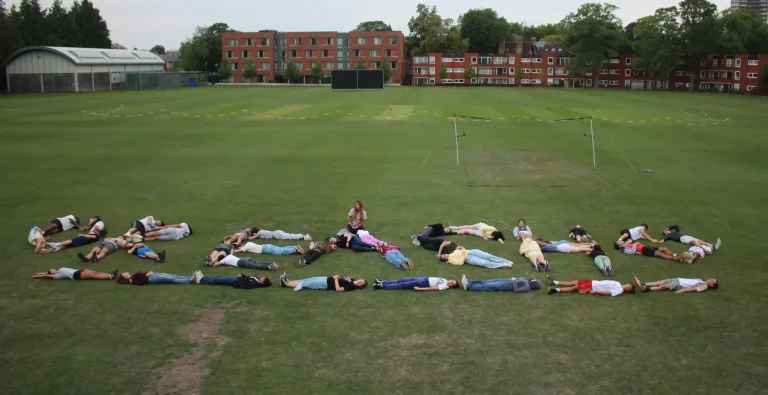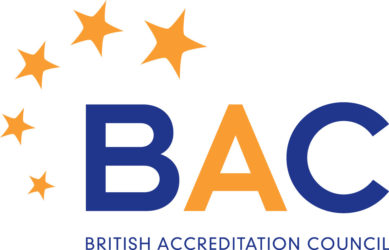Writing is hard. Writing well is even harder. Every writer, no matter their age or experience, has room to improve. So, without further ado, here are my top ten tips for writing a better and stronger essay each time you set your fingers to a keyboard. Try them out on your next essay and see which tips work best for you!
As told by Genny, our Director of Curriculum!

1. Choose a topic that's the right scale for your essay

A new method for writing wisely..?
Choosing your topic is possibly the most important decision you’re going to make while writing your essays, but also one of the easiest to overlook since you often chose your topic before you ever put pen to page.
Want to tackle the subject of global climate change? 500-750 words probably won’t be enough space to give the topic full justice. Consider covering one element of climate change (rising see levels perhaps), one of its causes, or one key consequence (is there a population or part of the world that is being disproportionately impacted?). What you chose to write about often isn’t as important as how you write about it, but making sure that you don’t bite off too little or too much can help ensure that you have the best chance to wow us and to write something truly impactful.
2. Have a thesis and make sure that it is clear (to you as well as the reader!)
What is a thesis?
By ‘thesis’, academics mean the statement you’re setting out to prove. Synonyms could be ‘contention’, ‘theory’, or simply ‘argument’.
Educators love to talk about thesis statements—myself included!—and about shaping your argument around your thesis. Indeed, it is true that everything in your essay should relate back to, or support, your thesis in some way. What we don’t always talk about enough is how hard this is, especially because sometimes you have to think your whole essay through, or even write a full first draft, before you know exactly what you’re arguing.
A good rule of thumb is this: if you can’t sum up your argument in one simple, declarative sentence, then your argument isn’t clear enough. Keep thinking. Keep writing. Keep re-drafting.

Essays are just like punting… It’s important to know where you’re headed!
3. Ask yourself questions while you write
One of the best ways to make sure that you know what your thesis is and to keep the rest of your essay on track, is to ask yourself questions as you draft and redraft: what am I really trying to say here? Is each word, sentence, and paragraph as clear as it can be? If something is unclear or unnecessary, be ruthless: either rewrite it or consider cutting that section entirely.
4. Read your essay out loud

I know that this one sounds a little strange, but many of the great writers I know swear by this technique. Once you’ve written a draft of an essay that you’re happy with, read it out loud, even if just to yourself. Sometimes a sentence looks fine on the page until you try to say it out loud and realise how clunky it is, how complicated or hard to understand. If you stumble over a sentence because it is hard to speak, it will likely be hard for others to read: change the wording or consider cutting it down. Does that tricky sentence really need to be there? What is the most important element of what it is trying to say?
5. Be clear, be concise
It’s tempting, when we’re writing an important essay, to reach for the fanciest words we know to show how expansive our vocabularies are. Similarly, it’s often easier to capture a complex idea with long and winding sentences. Unfortunately, both of these impulses can make our ideas harder, rather than easier, for other people to read and understand. As a rule, don’t use a fancy (longer, polysyllabic) word where a more ordinary word would suffice—especially if you aren’t 100% sure what the longer word means!—and aim for short sentences that build on one another rather than long meandering sentences that try to cover more than one idea.

Want to step up your academic game? Explore our essay subject courses and join us this Spring or Summer!
6. Be specific
Avoid broad statements, sweeping generalisations. Just as you should be clear and specific in your writing, you need to be clear and specific in your ideas. Avoid making statements that you can’t back up with evidence, or comments about the way other people see a specific issue. Stick to what you can prove to be true.
7. Use secondary sources wisely
It’s okay to use secondary sources. What is really important, however, whenever you’re using secondary source materials, is to not let that source material overpower your own voice. We want to know what you think, first, foremost, and always. For more on how you can critically incorporate outside sources into your essays, check out our blog on Structuring an Essay.
8. Have a ‘so what?’
 Just as you should be asking yourself questions throughout your essay-writing process to ensure that you’re keeping your writing on track, there is a very important question that you should be asking yourself once you’ve settled on a solid thesis statement and possibly already written a solid draft: ‘so what?’
Just as you should be asking yourself questions throughout your essay-writing process to ensure that you’re keeping your writing on track, there is a very important question that you should be asking yourself once you’ve settled on a solid thesis statement and possibly already written a solid draft: ‘so what?’
Why does your essay/argument matter? What is the broader significance of what you are saying? If you can incorporate that into your next essay, you’re already ahead of the curve and on your way to writing at a university level!
9. Give your essay a title
A title should obviously go at the top of your essay, but it’s a good idea to finalise your title last. A good title should tell your reader: a) what your topic is, and b) what your stance on the topic is. If you’re finding this hard to do, then your thesis might not be clear enough in your mind, and you’ll want to go back and redraft again (see Step 2!).
10. Draft and redraft and redraft and redraft!

Beat that blank page!
My final piece of advice for essay writing is not to let the blank page frighten you and to get your ideas on paper, even if they’re really rough at first, even if you’re not happy with them. It’s easier to edit than it is to write, so dive right in and get the writing done early. Brilliant essays rarely just happen, they take hard work and lots of commitment.
So there you go, my top 10 tips for writing a better, clearer essay every time you try!
750 words isn’t a lot of space—make every word count. And remember, no one is a perfect writer and everyone gets better with practice. When in doubt, get your thoughts down on paper, then draft and redraft and redraft!

Got the essay-writing bug?
Reach Cambridge has a number of Humanities subjects in which you’d have a field day writing essays! Explore our offerings here:
English Literature & Creative Writing







